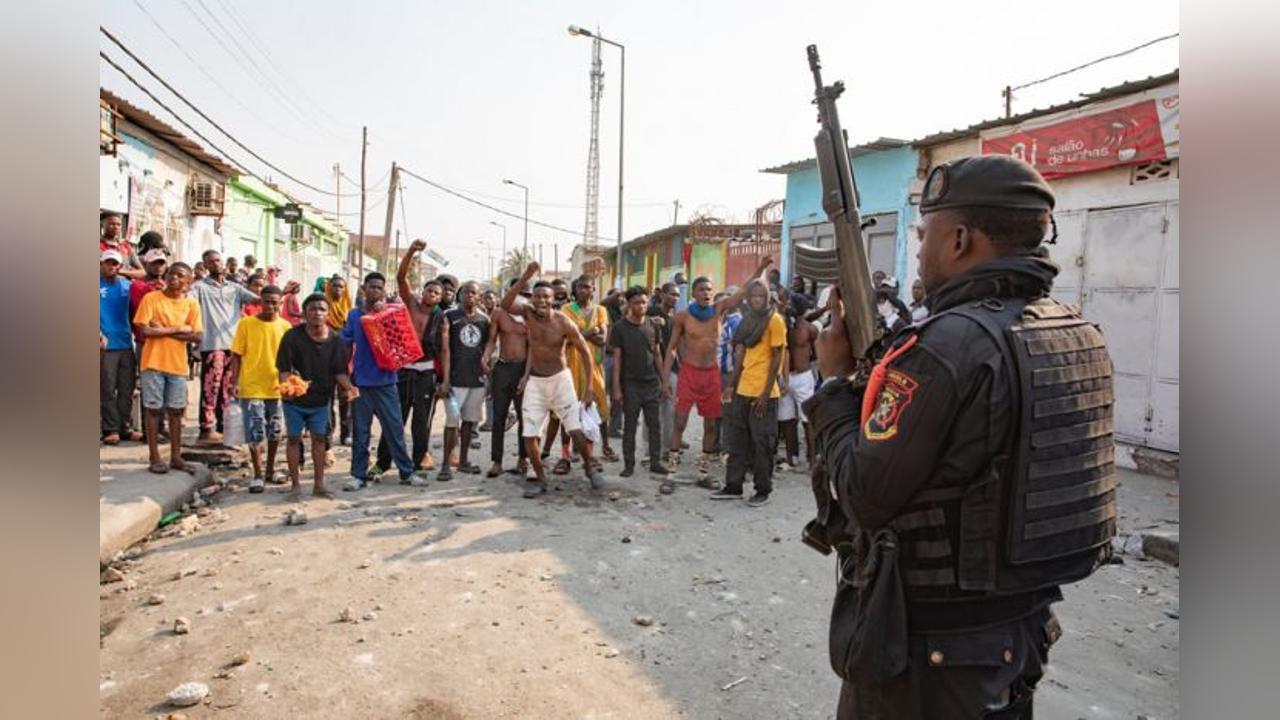Africa-Press – Angola. The Ministry of Internal Administration has launched a campaign to train more than five thousand police officers on human rights. In an interview with DW, activist Laura Macedo believes it’s necessary to educate those “up there.”
In Angola, a new national campaign is underway, promoted by the Ministry of Internal Affairs, focusing on community policing. The initiative includes training more than five thousand National Police officers in areas such as human rights, national languages, and sign language.
The campaign will be developed in partnership with several public and private institutions – including ministries, provincial governments, traditional authorities and educational establishments – which will collaborate in the implementation and monitoring of the initiative.
The goal? To strengthen ties between security forces and communities, promoting closer, more humane, and more effective action.
In an interview with DW Africa, Laura Macedo, a civil and human rights activist in Angola, considers the idea “great,” but says she will “wait and see,” since, according to her, the most recent episodes of police violence in the country have “orders that come from above.”
DW Africa: Do you believe that human rights training for more than five thousand officers will have a real impact on police behavior in the field? Or will it simply be a symbolic measure to improve the police’s image?
Laura Macedo (LM): The idea, if implemented, is excellent. Especially since it’s the Ministry of the Interior’s members who most violate human rights in Angola.
DW Africa: Do you believe it will be implemented?
LM: I think the MI (Ministry of the Interior) command should, first and foremost, receive this training. The same should happen with police commanders and officers, so they can reject orders that lead them to instruct officers to commit human rights violations.
DW Africa: Does this mean that the problem starts at the top?
LM: Seriously, we need to start educating from “way up there,” so that those below have an example. We’re talking about community officers… This is the first time the Ministry of the Interior has mentioned these officers. And what did it do? It placed snitches in the neighborhoods. Police community officers are “snitches.”
DW Africa: What Laura Macedo means is that this is a mere announcement – as has been made several times in recent years – and that it will have no substance?
LM: I’m not saying it can’t have substance, but after the police killed so many people in the back… I attended several funerals on July 28, 29, and 30. Most of the victims, men and women, were killed by the police with shots to the back.
DW Africa: Are you referring to the taxi drivers’ protests at the end of July?
LM: I’m referring to what happened at the same time. One thing was the protests, with taxi drivers leaving the streets. Another was the groups that carried out some of the riots. The police entered the neighborhoods shooting and killing people.
DW Africa: Do you think the killing orders came from the Angolan government, or is it simply due to the poor and deficient training of the agents on the ground?
LM: Where does an order to kill come from? It doesn’t come from that sub-inspector, or from an intendant. I don’t even believe it comes from a commissioner. For me, it’s an order that comes from higher up. Instead of announcing an investigation, there are images of the officers who killed. They come up with this story about the human rights course, and someone wants me to believe that the Ministry of the Interior is acting in good faith? We’ll have to wait and see.
For More News And Analysis About Angola Follow Africa-Press






